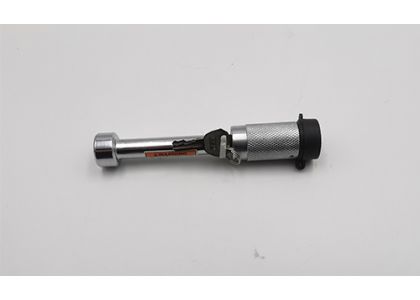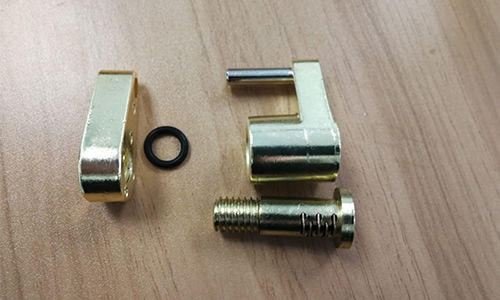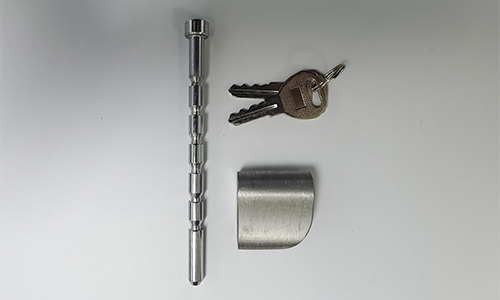About Hitch Locks

BY HEARST AUTOS RESEARCHPUBLISHED: NOV 8, 2021
Your Guide to Hitch Locks
If you own or recently purchased a new trailer, you might want to invest in a secure hitch lock to prevent trailer theft. We've created this guide based on expert recommendations to help you find the right hitch lock to keep your trailer secured to your vehicle.
What Are Hitch Locks?
Also known as trailer locks, hitch locks are useful tools to help you secure your trailer to your vehicle to prevent theft. Hitch locks should be secure and sturdy enough to prevent potential thieves from separating your trailer from your vehicle. The lock's primary function is to prevent anyone without the key to the lock from lifting the receiver off the hitch and disconnecting your trailer.
Equipping your trailer with a secure hitch lock can allow you to enjoy the following benefits:
Visual theft discouragement: Hitch locks are generally easy to spot, which can make potential thieves reconsider trying to disconnect your trailer. They also require a lock to gain access, making them difficult to break without a key.
Security reassurance: Locks can provide you with reassurance that your trailer is attached securely to your towing vehicle. Experts recommend investing in reputable anti-theft devices to better protect your property.
Potentially save money: By owning a secure trailer lock, you prevent thieves from stealing and damaging your equipment. This can mean not having to replace the trailer or repair damaged hitches.
Locks down your trailer: When you do not have your trailer actively connected to your vehicle, a hitch lock can help prevent any other vehicle operator from connecting to your trailer. This increases the security of your trailer because locks are difficult to crack, break, or unlock without the key.
Increase trailer safety: Using a hitch lock while towing your trailer can improve the safety of the connection between your vehicle and trailer. It adds another layer of security to keep your trailer connected to your vehicle while it's in motion.
Types of Hitch Locks
The industry recognizes that each trailer owner has different security requirements. That's why several types of hitch locks are currently on the market. Types of hitch locks you might consider for your trailer include:
Receiver Hitch Lock
The receiver hitch lock fits through the towing vehicle's receiver holes. The metal pins can have one or two locks on either end. If it has one lock, manufacturers usually curve the end or make it crooked to prevent it from being pulled through the other end of the hitch.
Coupler Hitch Lock
This type of hitch lock resembles a U-lock for a bicycle. It's useful when you don't have the trailer connected to a towing vehicle. This lock generally features a ball-shaped top that fits into the tongue of the hitch. Then, a bar sits on top of the hitch, which connects both sides to the ball-shaped base of the lock.
Hitch Pin Lock
This type of pin lock slides into the fastener hold where the hitch meets the frame of your vehicle. It can prevent thieves from disconnecting the entire hitch or connecting their vehicle to your trailer.

Latch Pin Lock
The latch pin lock is like the hitch pin lock, except it slides into the trailer hitch latch and locks into place. It can prevent the latch from being lifted and connected to another vehicle. Latch pin locks can also provide an extra layer of security if you use them while you have your trailer connected to your towing vehicle.

How To Choose Hitch Locks
When shopping for a hitch lock, consider the following:
Compatibility: When selecting a trailer lock, make sure the lock is compatible with the existing trailer hitch. Certain lock styles come in various sizes and weight ratings.
Material: A lock's material can help determine its durability against damage and weather. Steel locks are more durable than aluminum locks, and most of them have finishes that help protect against corrosion.
Security: Finding a lock with complex locking mechanisms can help deter any lock picking efforts from potential thieves. Additionally, finding a lock that has a device to absorb impact can increase the security of your lock.
Visibility: A bright-colored or large lock can increase the visibility of your hitch lock and deter lock tampering. Many hitch locks are red or yellow to increase overall visibility.
Versatility: If you need to secure more than one trailer, look for a universal hitch lock. You can use latch pin locks and coupler-style locks for a variety of trailers because of their relatively universal fit.